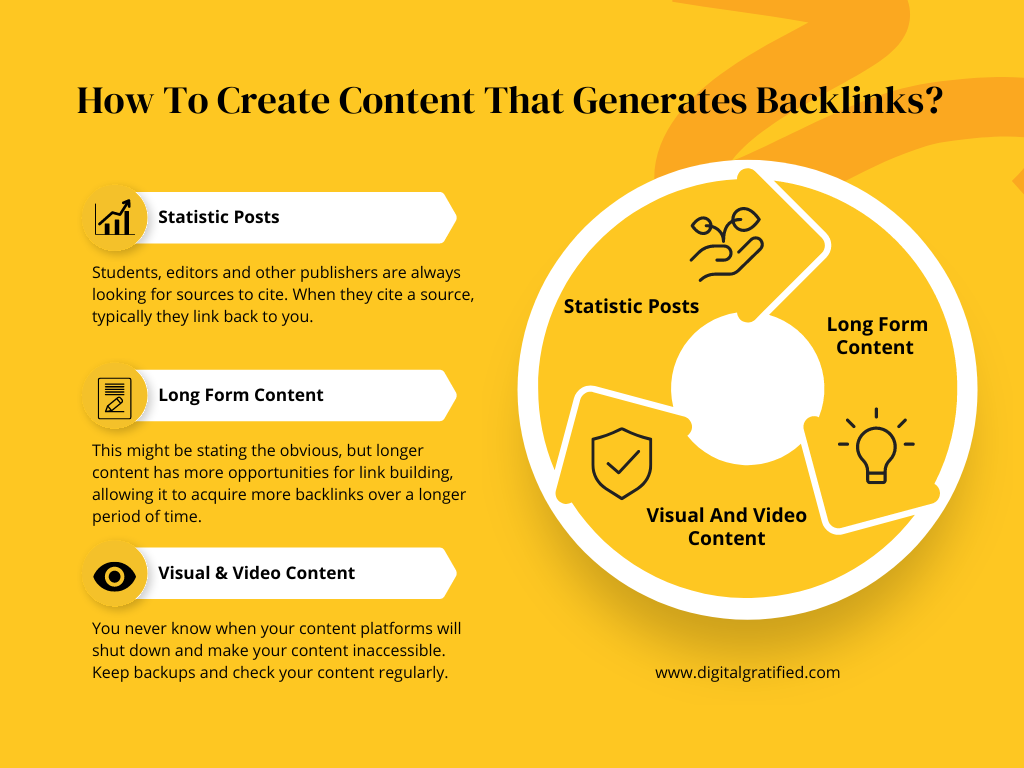Link building is one of the most powerful SEO strategies to rank your website on Google. But we both have to agree it is not an easy task.
And that is exactly why most brands prefer to outsource link building to professional agencies or SEOs.
Of course, you can also generate backlinks yourself through organic approaches like blogging. This works in such a way that when you create high-quality content, people who find it valuable enough to reference on their website will link back to your page.

You’re not sure how much that will cost you? No worries, I’ve broken it down in the next sections.
Just a sneak peek: Link building cost varies between $60 to $5,000 per link, depending on your preferred link quality, domain rating, and industry.
Other things you will learn include how backlinks really affect your website’s SEO and the qualities of a good link.
How Does Link Building Influence Search Engine Ranking?
There are key metrics that Google uses to rank websites in its search results. One of these metrics is known as PageRank.
PageRank uses factors such as the number of internal links you have and backlinks or outbound links referring back to your website to determine the importance and authoritativeness of your website as a whole.
Let’s say you run a blog website, and many other high-rank websites refer back to your blog articles; Google’s PageRank algorithm automatically assumes your content is useful to users. In turn, Google ranks your article higher on SERPs so that more users can see it.
Ideally, you need to know that not all backlinks you create will significantly influence your website ranking. Some links might be treated as spam and ignored by search engines if you build them the wrong way or if they’re coming from websites with barely passable domain ratings.
In simpler words, you will need many good backlinks.
But What Is A Good Backlink?
You can have a lot of backlinks and yet still be penalized by Google if they’re lacking in quality or gotten with black-hat approaches.
That’s not to say quantity does not matter. What I mean is you need both numbers and quality.

In case you’re not sure what qualifies a backlink as “good”, here are some things to the checklist:
Good Backlinks Don’t Just Look Natural – They Actually Are
When a website owner naturally decides to link back to your content after finding it useful, that’s a good backlink. Website owners don’t want to refer their users to other websites with useless or controversial content.
But when they make a decision to link back to your site, your content has earned their endorsement. And Google will not treat that natural endorsement lightly.
If It Is Not From A Reputable Source, It Is Not Good
Google loves reputable sources. I mean sources that have earned users’ credibility.
For example, when your article earns an outbound backlink from sources like the BBC, CNN, Forbes, or TechCrunch, Google is in a position to treat your content as relevant. This is because these sources are highly reputable and naturally considered authoritative by Google.
How do you know if a website is reputable and authoritative? Well, let’s make it practical.
Let’s say you have a technology article on “how to remove antivirus from your computer”. It’s well-written and has every feature that can qualify it to rank favorably in Google SERP.
On the other hand, a website like TechCrunch writes about the same topic just as you did.
What happens is that Google will give a favorable ranking to the TechCrunch article and consider yours after. Why? Because TechCrunch has a reputation with probably millions of monthly visitors and millions of backlinks referring back to its content.
They’ve earned enough relevance to be considered first by Google and other search engines.
These types of websites provide backlinks that are too difficult to ignore by search engines to your domain.
Good Backlinks Should Be Followed
If you add a No-Follow attribute to either inbound or inbound links, you’re automatically telling Google bots not to consider them as backlink juice.
This further takes us back to what I said earlier in this article: not all backlinks are equal!
You can have so many outbound links referring back to your site, but they don’t offer any SEO value because the website owners have added a no-follow attribute to the links.
Of course, the biggest number of website owners out there who are likely to refer back to your site won’t necessarily add a no-follow to the outbound links on their websites.
The Best Links Are Traffic Fetchers
Backlinks are generally considered a key goal-setter for SaaS lead generation.
So, one of the factors that technically determines if a backlink is good is its ability to refer a substantial amount of traffic to your site.
Of course, this is unrelated to SERP ranking but relevant to this topic. The reason why you want to have your site ranked favorably in SERP is to refer a good amount of organic traffic to it.
But it doesn’t hurt to also take a cut of traffic from the other end. High-quality backlinks from sources with good traffic will directly increase your site traffic.
For instance, sites like CNN, BBC, or Fox News receive tens of millions of visitors per day.
And at the end of the month, their traffic is hundreds of millions of site visitors. Assuming one of these sites writes an article with a link that refers back to your site, your website will benefit from their traffic, hence giving you double value.
The Link Building Economy – Should I Purchase Backlinks?
Without any doubt, your website needs traffic – and SaaS link building is one of the key strategies you can employ to get it. In one way, you can say your link building capacity determines how well your website will be perceived by search engines.
Remember I mentioned earlier on that you can build links the organic way by creating link-worthy content. But there are three problems with this approach:
- It is time-consuming and impractical to reach your goals in a few years.
- Large-scale quality SaaS content marketing and content creation costs tens of thousands of dollars. You also need to factor in the expenses for gathering real-time original survey stats which you will use to create your unique content.
- You might not get any results. Millions of websites are out there following this approach without a significant boost in ranking.
That’s not to say content creation is a red flag. After all, links need content. But content shouldn’t be your mainstay process for building quantity and quality links.
The best way is to consider hiring an agency that provides affordable link building services, which includes generating quality backlinks for your website. Most websites like Hubspot, Forbes, and BBC have used or are still using this strategy.
And as the saying goes, the more you give, the more you get. The more you invest in link building, the more boosts your SEO gets.
How Many Backlinks Does My Website Need?
No two websites need the same number of backlinks. And here are a few factors that will influence how many links you need:
Keyword Difficulty
Keywords are specific terms that people search for when looking for your content or resources.
Let’s say you want to compare various web hosting providers in your article. The main keyword to include in your article is most likely going to be “hosting” or “hosting providers” or “best hosting providers”.
These keywords fall into the circle of what others will likely search for. And once they do, your website is going to be among the millions of Google results.
Now, Keyword Difficulty, also called KD, is a measurement of how competitive a keyword is. A highly competitive keyword is one used by various websites, including sites with authoritative content and high domain ratings.
Using highly competitive keywords means you’re indirectly challenging those top websites. That’s difficult to do for a low-ranking website.
So whether you will displace them and achieve a higher search ranking depends on the quality of your content, domain authority or rating, and number of backlinks.
Of course, other SEO factors like internal linking, tech SEO, and content relevance matter, but mainly, it revolves around those three things above – particularly the number and quality of the backlinks you have.
How Can You Measure Keyword Difficulty?
There are tools like SEMrush, Moz, and Ahrefs for carrying out SaaS keyword research and measuring metrics like keyword difficulty. You can also use entirely free tools like Google Keyword Planner.
On a general scale, keyword difficulty ranks from 0 to 100. 0 is the easiest to rank for, but that might also mean such keywords get extremely low volume.
As for 100, that’s almost impossible to rank for, even with hundreds of thousands of blog posts, except if you build just as many quality links.

Industry Or Niche Competition
Similar to keyword difficulty, there’s Industry difficulty. For fairly easy industries like sustainability or education, you might not need a truckload of backlinks to rank well. Of course, you still need them, but not in thousands.
On the flip side, extremely competitive industries like B2B SaaS require a lot of backlinks to rank on highly competitive keywords, which makes SaaS marketing more complicated than eCommerce SEO.
If you conduct a competitor backlinks analysis on HubSpot, a SaaS CRM brand, you will notice they have over 350 thousand referring domains – huge, right?
Now imagine competing with this hegemon with just a hundred backlinks. That’s out of it!
Does that mean you need to go ahead and build 370 thousand backlinks, too? Nah, you just need to build as many links as you can right now so that you will rank well.
Over time, more and more websites will link to you so long as they see that your domain rating is high. Everyone wants to cling to the big guys.
How Is Link Building Price Determined?
There are some crucial factors you need to understand before making an estimate:
The Number Of Links You Need
You need to first have an idea of how many backlinks you need to purchase. More links mean that you will have to spend thousands of dollars.
As I said before, a highly competitive keyword will definitely need more backlinks to boost your content.
But you need to weigh your cons and pros before investing. You don’t want to burn your dollars on purchasing links without understanding how much return on investment they can bring in.
Just know that if you’re planning to buy several high-quality links, you are going to spend more.
- At least, links from relevant, authoritative sources would likely be anywhere from $100 to $1,000+.
The Industry You’re Operating In
Niches like Real estate, fashion, and retail are not as competitive as business, SaaS, finance, development, and eCommerce. There are many established players operating in these niches already, and if you’re just a newcomer, you will need to do more so you can beat them.
Now, assuming you would like to get some backlinks using white hat approaches, you will need other platforms that accept things like guest posting. Let’s say you’re operating in a technology niche; you will have to reach out to other high-authority websites.
But you need to know that many of these platforms will charge you a good amount of money for just posting.
- Prices for such guest posts could be from $100 to over $600.
The Quality Of Links You Want
To get the most out of your investment, it’s important to build links that can offer real value to your website in terms of facilitating your search engine rankings.
Link building cost for low-quality links is usually cheap and ranges from just a couple of bucks to $100+.
The downside of getting cheap, low-quality backlinks is that they can’t bring in the results you badly want. And so, it’s important you choose high-quality backlinks.
High-quality backlinks are those that come from high-authority domains and are deemed by Google as having high-authority content.
You can get such a backlink either through a guest post, a niche edit, a link exchange, etc.
- According to our estimate, link building prices for high-quality domains range from $100 up to over $5,000 per link.
But again, you need to do the right math here to avoid miscalculations that could cost you money without properly understanding the return on investment (ROI).
Link Building Cost If You Use Your Inhouse Link Building Team
Some brands and startups prefer using an in-house link building team, also sometimes called an SEO team, to get the job done.
Usually, building an in-house SEO team needs time, the right people, and generally, enough resources to do it.

Is it a good approach? Yes. But Is it worth it economically? Well, no!
Moreover, you might not get the results you want or meet your goals – in most cases.
Link Building Pricing – If You Do It The Agency Way
Most brands hire a link building agency to do everything for them. This is a lot easier, cheaper, and affordable compared to assembling a link building team in-house.
Moreover, a reputable SaaS digital marketing agency like Digital Gratified can help you acquire relevant, high-quality backlinks with real value and quantity in the shortest time possible.
On average, it costs only $4,000 to $5,000 to build dozens of good links with agencies – a lot cheaper than in-house teams.

Summary: How Much Does Link Building Cost?
We’ve gone through all the highs and lows of the factors affecting link building pricing. Here’s a good estimate to work with:
- A low-quality backlink costs $60 – $100
- A medium-quality backlink costs $100 – $200
- A high-quality backlink costs $200 – $5,000
To get a more accurate link building cost, you can use our link building cost calculator. There’s also an SEO cost calculator if you need additional SaaS SEO services.








